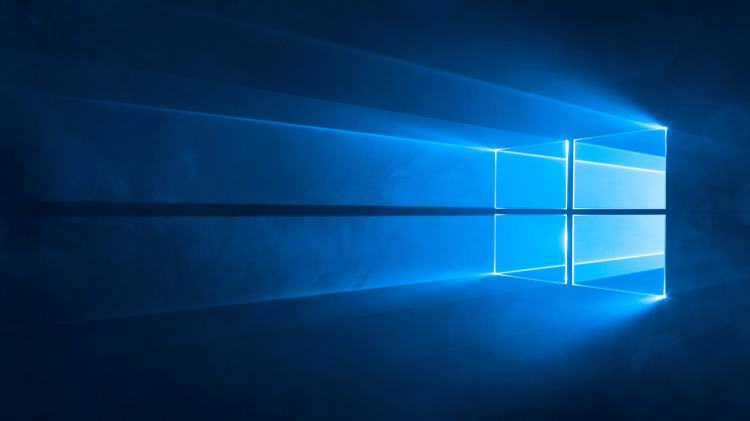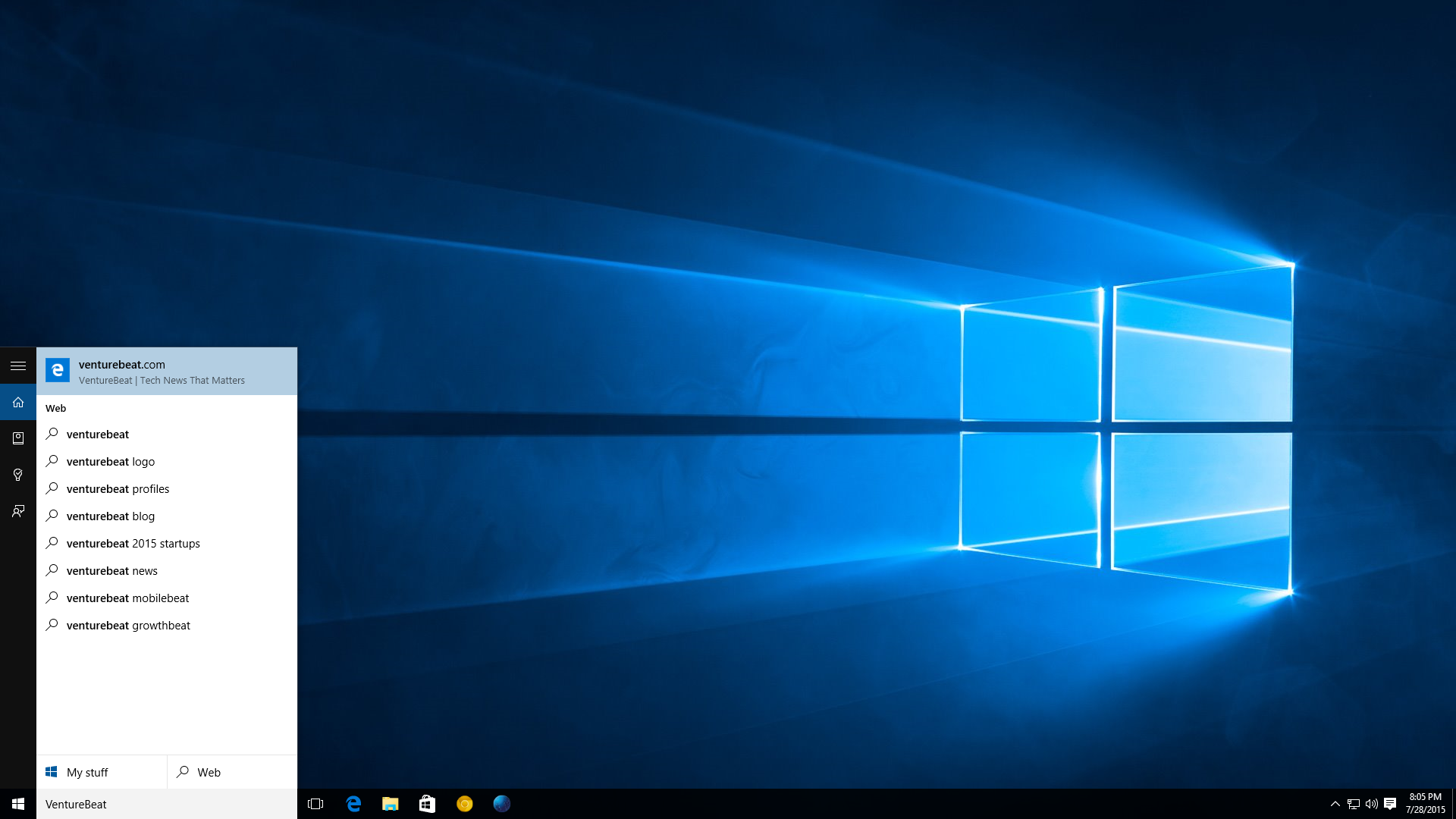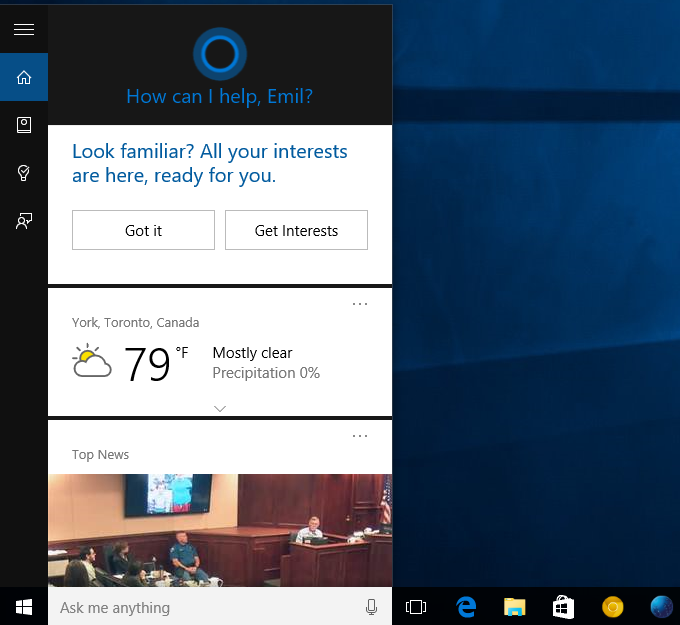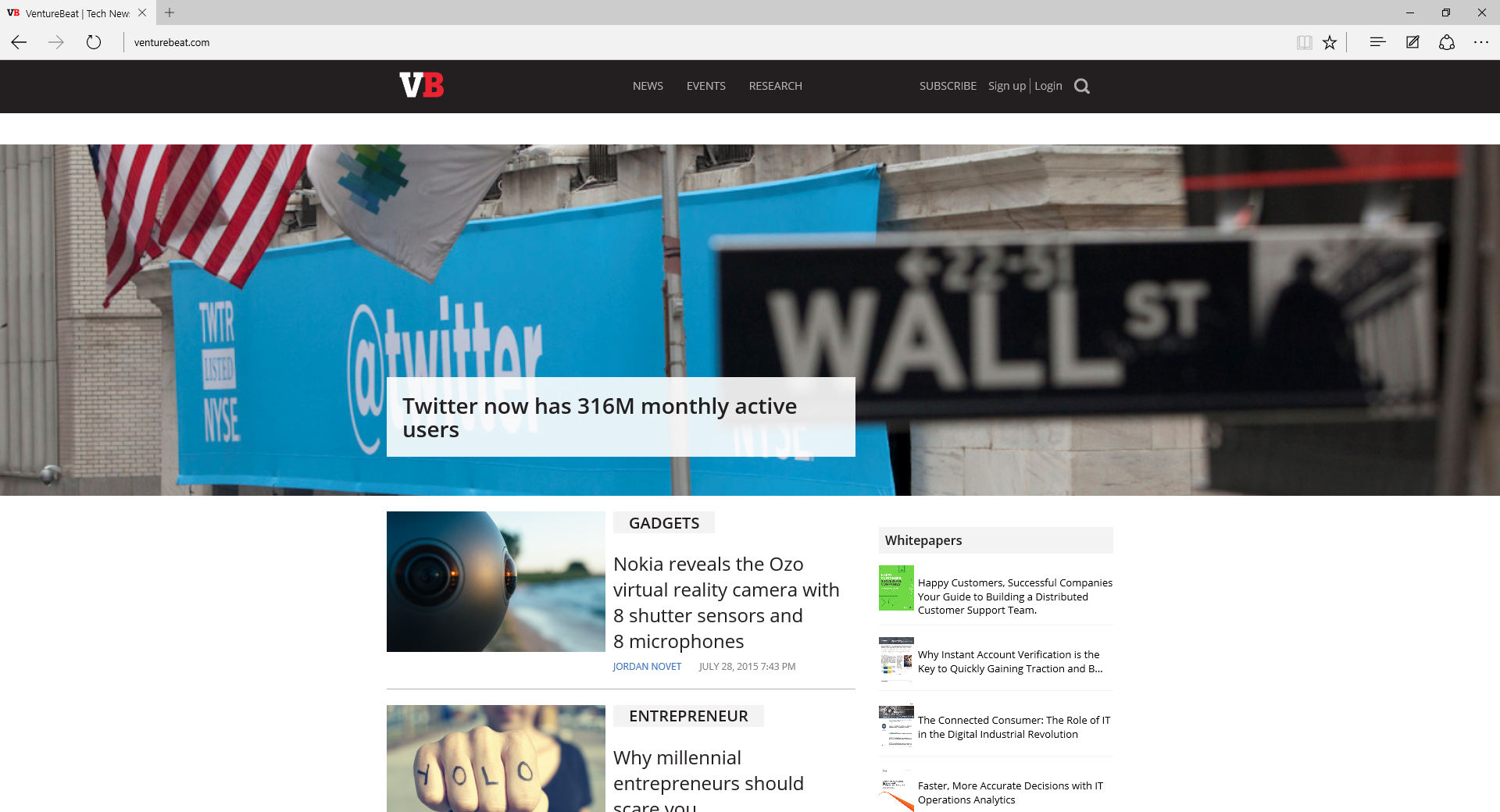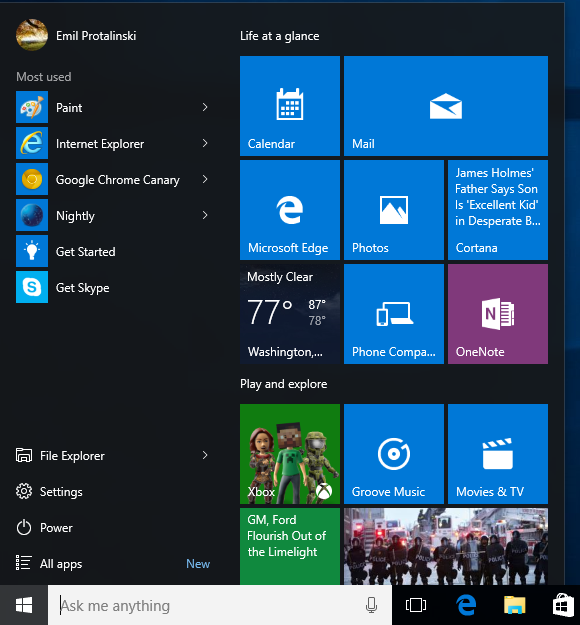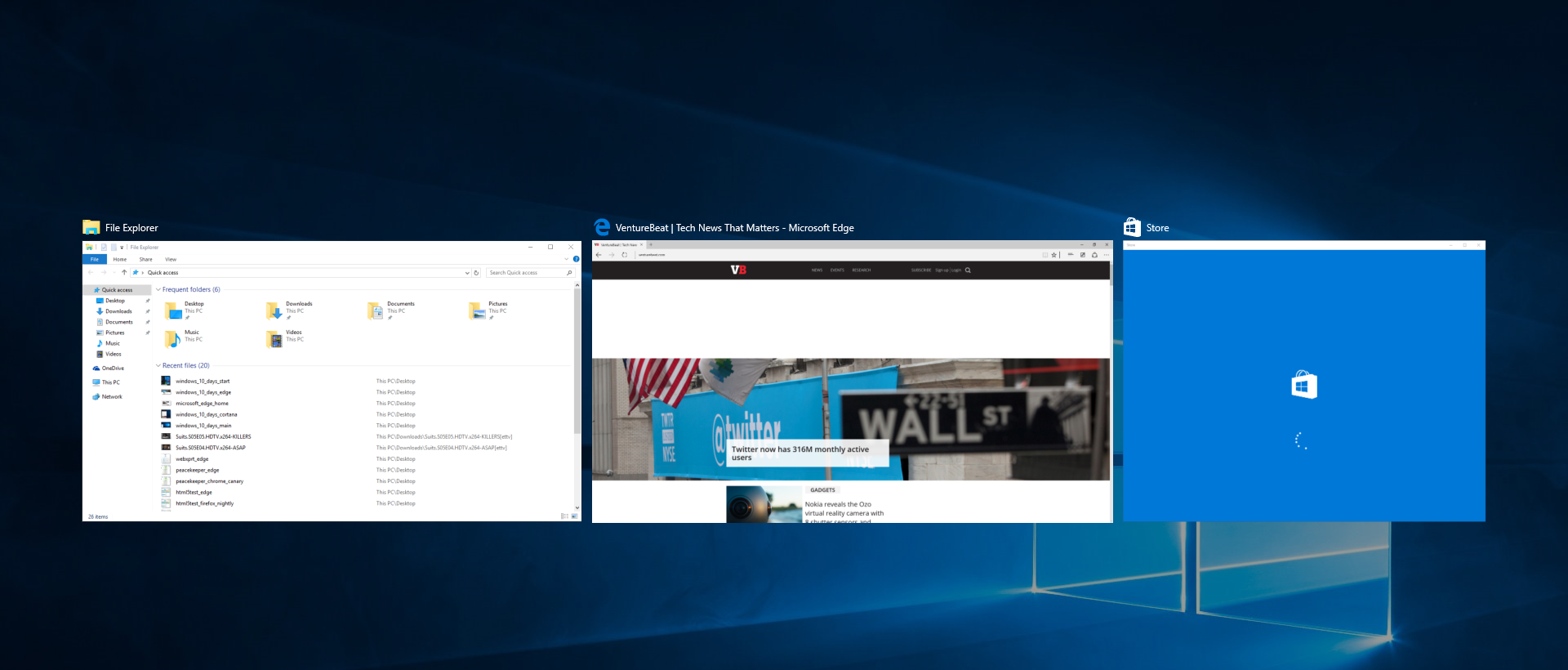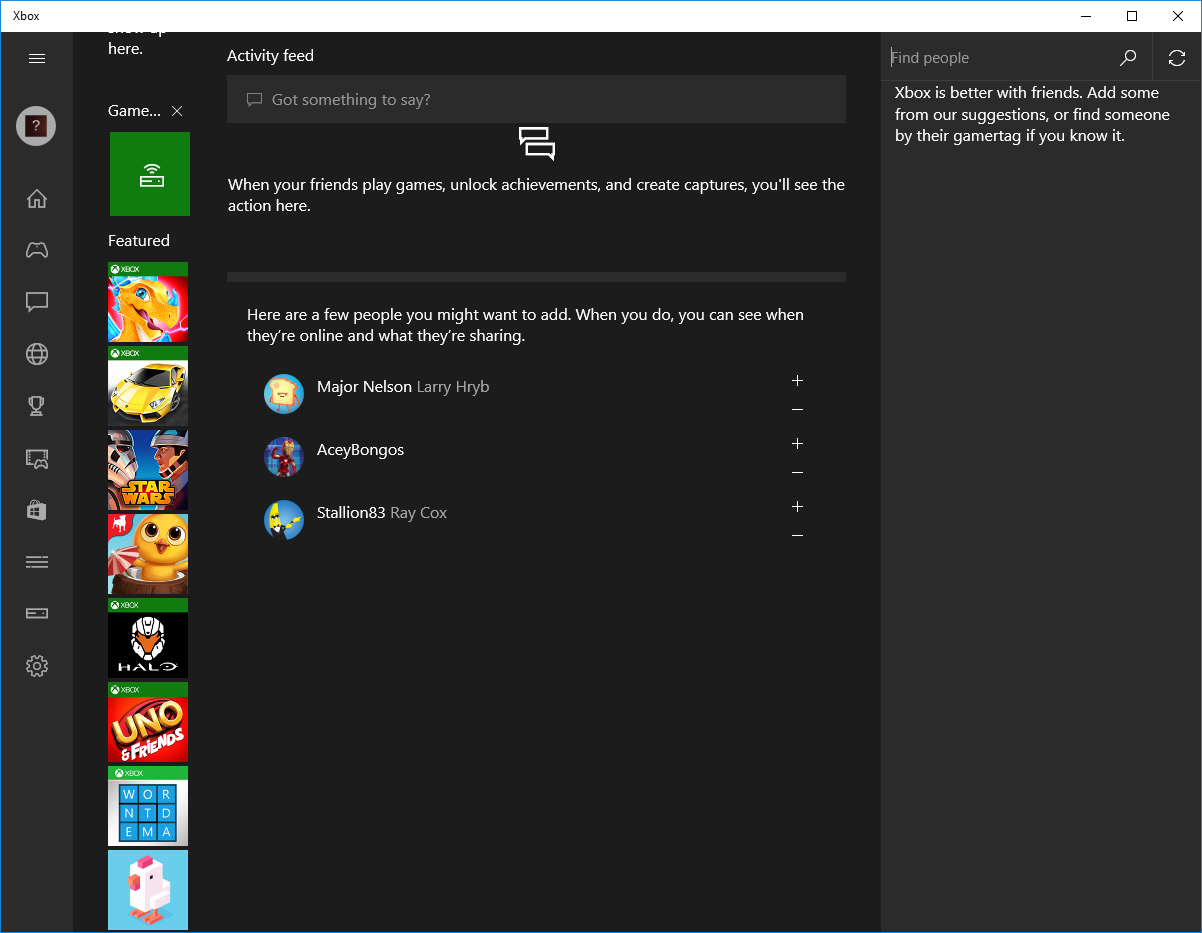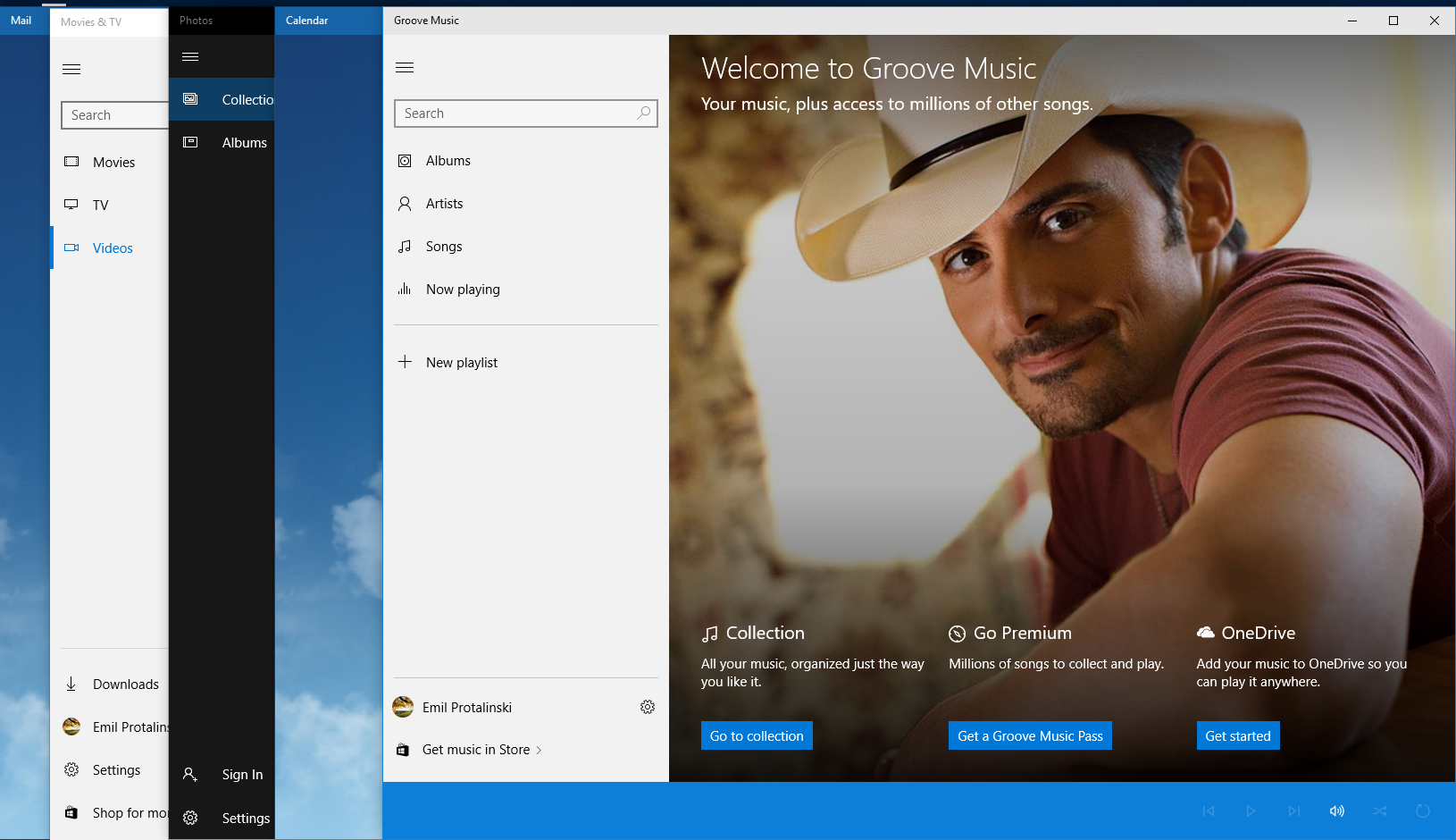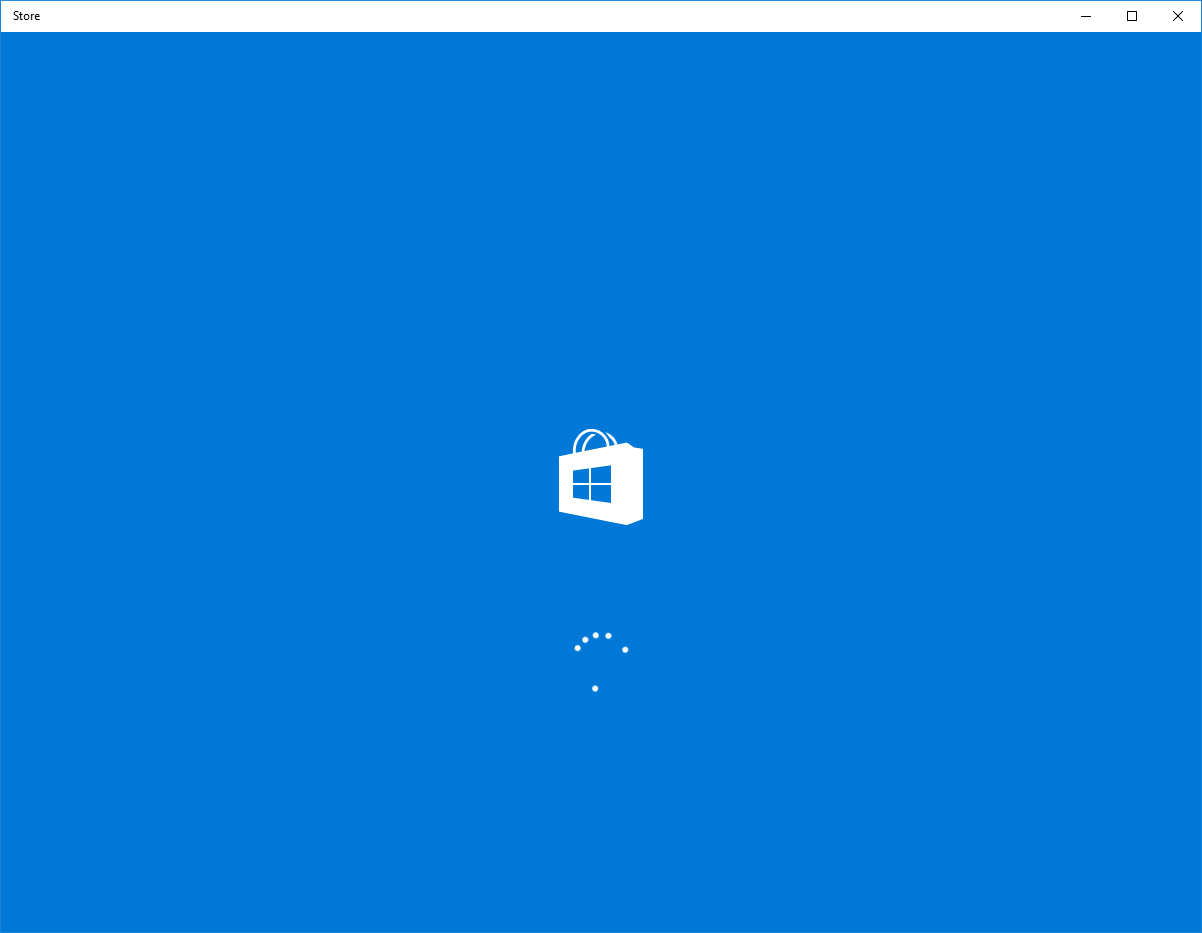Windows 10 just launched, but it isn’t done. It’s never going to be done, at least if you ask Microsoft.
It’s incredibly difficult to review an operating system that is being developed as a service. So, because the operating system will be getting major updates, our review will too.
We’ll be putting Windows 10 under the microscope more than once. The latest version, build 10240, has been available to testers for less than two weeks. Already though, right after this review goes live, Microsoft will release a massive “Day One update” that will fix various bugs, improve stability, and boost performance.
So the build that I’ve been using for the last 10 days, and the builds that testers and I have tried for the last few months, doesn’t accurately represent the Windows 10 you will get. I can’t tell you how Windows 10 will work for you, but I can tell you what does and what doesn’t work in general.
Features
Cortana: Works, if you can get her. Read our deep dive.
Microsoft’s personal intelligent assistant gets the job done. That said, you’ll have to spend some time setting her up and getting used to her. If you don’t, you’ll probably just use her like a search engine, though that’s not all that bad.
More importantly, you may not be able to use her at all. Cortana for Windows 10 is available in the U.S., the U.K., China, France, Italy, Germany, and Spain. Next, she is coming to Japan and Australia, as well as Canada and India (in English). After that, Cortana is heading to Brazil and Mexico, and to Canada (in French). Live somewhere else? Keep waiting.
Microsoft Edge: Works, but isn’t extensible. Read our deep dive.
If you use Chrome extensions or Firefox add-ons, you’ll want to download a new browser. Most users will find Edge to be adequate in terms of features, and fast in terms of performance. In short, Edge is powerful, but it’s not for power users.
Start: Works brilliantly. The Start menu is back and it’s better than ever. The best part is that you can customize it quite a bit (including by pinning not just apps but full-fledged programs as well), and frequently used options are right where they should be.
Task View: Works well. Think of this like the home section of the Alt+Tab feature. It shows all your open windows so you can just click on the one you want.
Xbox: Works, but you’ll need the right hardware. That means an Xbox controller if you want to just play Windows games that support it, but you’ll also need more than just an Xbox One if you want to stream games from your console to your computer.
More specifically, your PC, laptop, or tablet needs to meet the following hardware requirements for game streaming: a 1.5GHz multicore processor, 4GB of RAM or more, and ideally a wired Ethernet connection (an 802.11 N or newer wireless adapter is recommended otherwise).
Built-in apps: Don’t really work. These apps are basic, and if you spend any serious time inside them, chances are you’ll be looking to install an alternative. That’s fine as that’s exactly what they’re for, but just don’t set your expectations too high.
Photos gets the job done, but doesn’t let you do any serious editing. Mail doesn’t offer a unified inbox, and Calendar still needs some fine tuning. Maps is also decent, but it doesn’t always provide very much detail, so you’ll often find yourself firing up your browser. The Music and Movies & TV apps crash and hang on the regular.
Windows Store: Doesn’t work. That may seem harsh, but it’s the truth. It’s also completely expected: apps are only starting to flow in now, and you’re going to have to wait a little before there’s a proper selection.
Aside from Cortana and Edge, this is probably the biggest bet Microsoft is making in Windows 10. The company is clearly hoping users will not only use the store to get apps and games, but also to buy and rent music, movies, and TV shows. A true digital store, if you will.
Bugs and Updates
Windows 10 still has plenty of bugs. Any Windows Insider will probably be able to list a handful for you. Even after the Day One update, I suspect some of these will remain.
It’s important to emphasize, however, that none of these bugs are showstoppers. Chances are you won’t experience any of them.
On the other hand, Windows 10 is not invincible. You may see apps crash or even the whole system hanging. If you aren’t dying to upgrade, wait it out.
Again, Windows 10 is “done” but that doesn’t mean it’s ready for everyone. Today is the day it is starting to roll out, with a huge emphasis on the word “starting.”
Microsoft hopes that by the time you get Windows 10, it will work as expected on your machine. If you’re willing to deal with potential issues, go ahead and upgrade. If you want it today and want to minimize the chance of problems, go out and buy a new Windows 10 PC.
Regardless of how you get Windows 10 though, make sure to run Windows Update a few times. Microsoft isn’t kidding about Windows 10 as a service: Fixes really are going to be delivered on the fly.
Not just that, but Windows 10 will be getting a ton of new features. Some of these are expected and have been discussed before: Microsoft Edge extensions and messaging integration with Skype, for example. Many business and enterprise additions are also in the pipeline.
Others haven’t been revealed yet because Microsoft wants to make them a surprise. A few will arrive later this year, but already some are slated for 2016.
